“That which does not kill us makes us stronger.” ~ Friedrich Nietzsche
Failure is one of life’s most common traumas, yet people’s responses to it vary widely. Many managers have learned to reframe personal and departmental setbacks by stating: “There are no mistakes, only learning opportunities”—and it’s a great sentiment. In practice, however, their companies often continue to view failures in the most negative light.
Part of the problem lies in our natural tendency to blame. We perceive and react to failure inappropriately. How can we learn anything if our energy is tied up in either assigning or avoiding blame? Still others overreact with self-criticism, which leads to stagnation and fears of taking future risks.
One of the common things that come up frequently in my coaching sessions (coaching4ldrs.com) is dealing with mistakes and the excessive blaming that goes on in the work place.
In the 1930s, psychologist Saul Rosenzweig proposed three broad personality categories for how we experience anger and frustration:
1. Extrapunitive: Prone to unfairly blame others
2. Impunitive: Denies that failure has occurred or one’s own role in it
3. Intropunitive: Judges self too harshly and imagines failures where none exist
Extrapunitive responses are common in the business world. Because of socialization and other gender influences, women are more likely to be intropunitive.
Fortunately, managers at all organizational levels can repair their flawed responses to failure. Business consultants Ben Dattner and Robert Hogan suggest several highly effective steps in “Can You Handle Failure?” (Harvard Business Review, April 2011):
Cultivate Self-Awareness
First, identify which of the three blaming styles you use. (Note: They occur automatically and immediately, so they are unconscious emotional responses.)
1. Do you look to blame others?
2. Deny blame?
3. Blame yourself?
It’s hard for us to see our own personalities clearly, let alone our flaws. It’s harder still to learn from our mistakes if we’re caught up in the blame game.
Next, take at least one self-assessment test to help broaden your view of your interaction style. Two popular assessments are the Myers-Briggs Type Indicator and the Big Five Personality Test. (You can take a free version online at personal.psu.edu/j5j/IPIP/ipipneo120.htm.)
Finally, work with a coach or mentor (coaching4ldrs.com) to improve your level of self-awareness. While it takes some time to shine a light on our attitudes with respect to failure and blame, each of us can benefit from such reflection and discussion.
For example, think about challenging events or jobs in your career, and consider how you handled them. What could you have done better? Ask trusted colleagues, mentors or coaches marc@mocoach4ldrs.com) to evaluate your reactions to, and explanations for, failures.
Pay close attention to the subtleties of how people respond to you in common workplace situations. Ask for informal feedback. If you’re in a managerial position, you may underestimate how what you say may be perceived as criticism, due to the hierarchical nature of your job.
What are your suggestions for improving self-awareness in the workplace? I'd love to hear from you, leave a comment.

